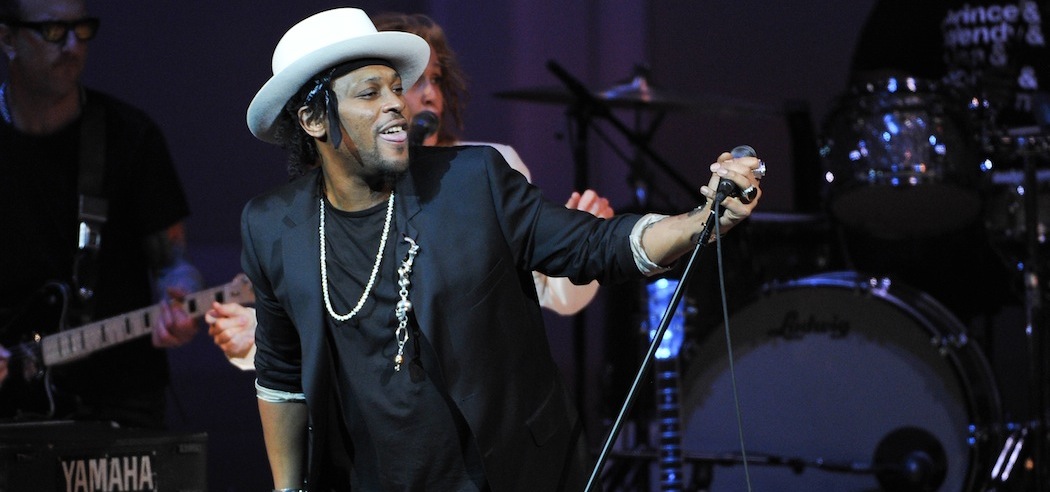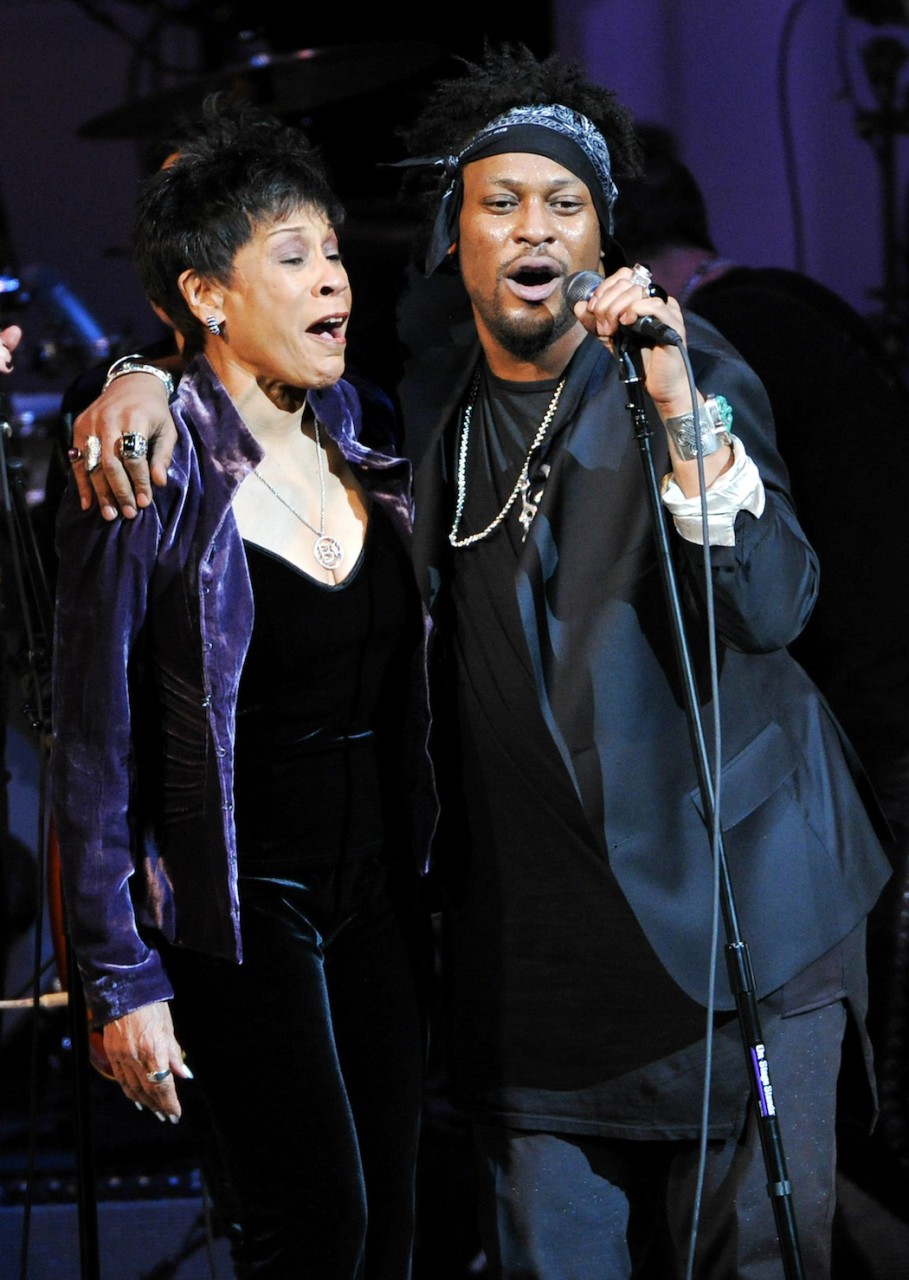Advertisement
D'Angelo: 'We Should All Aspire To Be A Black Messiah'

Waiting nearly 15 years to release an album can inflate expectations to preposterous proportions. If, by the album’s end, its creator hasn’t proven the existence of unicorns, cured bad breath, and conquered climate change, some fans may be disappointed since anything allowed to gestate for so long should do nothing less than alter all human existence.
If such hefty anticipation weighed on D’Angelo, the mercurial, profoundly talented modern soul man, it certainly isn’t evident on “Black Messiah,” his first studio album since 2000’s multi-Grammy winner, “Voodoo.” Despite the vexing lull between efforts, “Black Messiah” arrives well worth the wait with the expansive, edge-blurring R&B largely missing from music since, well, the heady heyday of the neo-soul era that D’Angelo, along with such like-minded artists as Erykah Badu and Maxwell, helped propel in the mid-1990s.
Don’t get it twisted — “Black Messiah” isn’t trapped in a time before Instagram, smartphones and forever wars. Its ecstatic musicality and blue-light groove accomplishes the tricky feat of sounding both contemporary and timeless. That’s because in addition to his still-obvious influences such as Marvin Gaye, Curtis Mayfield and, first and foremost, Prince, D’Angelo has also looked to Beethoven for inspiration. In a 2012 GQ interview, the now-40-year-old singer, songwriter and multi-instrumentalist, borrowing a quote credited to the great composer, said he “makes music for the ages.” It’s one thing to say it; D’Angelo actually does it.
Of his album’s provocative and sure-to-be misunderstood title, in a statement released at an invitation-only listening party, D’Angelo said, “For me, the title is about all of us. It's about the world. It's about an idea we can all aspire to. We should all aspire to be a Black Messiah. It’s about people rising up in Ferguson and in Egypt and in Occupy Wall Street and in every place where a community has had enough and decides to make change happen. It's not about praising one charismatic leader but celebrating thousands of them." While the album isn’t mired in politics, there’s still a charged undercurrent to “Black Messiah,” whether it’s the dissonant grindhouse funk of “1000 Deaths,” or “The Charade.” Written by D’Angelo and Kendra Foster, its churning chorus has a line destined for countless protestors’ chants:
All we wanted was a chance to talk
'Stead we only got outlined in chalk

Throughout his brief discography — just three studio albums in nearly 20 years — D’Angelo has made music that has a retro sheen, but is always looking forward. And despite the fact that these are songs he might have worked on for years, they don’t sound as if they’ve been mercilessly tweaked and fussed over. With his backing band The Vanguard, they’re loose and organic as if evolved out of late-night jam sessions where there was no greater objective than to allow these flowing rhythms to follow their natural course.
Only 21 when he released his first album, “Brown Sugar” in 1995, D'Angelo, the Virginia-born son of a preacher man, seemed fully formed as a singer, musician and songwriter. It still stands as one of the finest debuts ever, arguably the best soul/R&B record since Stevie Wonder’s remarkable 1970s run. Five years passed before “Voodoo” was released, then D’Angelo went virtually silent. There were substance abuse problems, aborted comebacks and health issues. Many wondered if he was done, and even after he began touring — and there were some astonishing live performances, followed by sudden cancellations — it seemed as if there would never be another proper album. When this album’s arrival was suddenly announced late last week, the news was greeted with equal doses of excitement and incredulity.
Advertisement
On “Back to the Future, Part 1,” D’Angelo addresses his difficult hibernation with humility and humor singing, over a spare, but blossoming arrangement:
I used to get real high, now I'm just gettin' a buzz.
He even slyly references the unexpected aftermath of his notorious 2000 video, “Untitled (How Does It Feel),” in which he appeared nude, from a smidgen above the groin, the better to show off his then-absurdly ripped physique. Becoming an unwilling sex symbol began to overshadow his music, and he wanted nothing to do with it. Now he sings:
So if you're wondering about the shape I'm in
I hope it ain't my abdomen that you're referring to
When so many contemporary albums are bloated beyond talent or reason, “Black Messiah” clocks in four minutes shy of an hour; of its 12 tracks, none exceed six minutes, and D’Angelo does what great performers do — leaves his audience wanting more. Of course, more is all his fans have wanted for 15 years.
On “Betray My Heart,” D’Angelo croons in his gospel-cured liquid falsetto, “I will never betray my heart.” With “Black Messiah,” nor does he betray his art. For this once prodigal son of soul who has found his musical faith again, his heart and his art signify exactly the same thing.
More:



